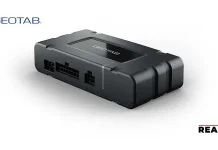Neurolign Technologies™, the global leader in clinical eye-tracking and neuro-functional diagnostic testing, announced the expansion of an ongoing strategic partnership with the Henry M. Jackson Foundation for the Advancement of Military Medicine. The Henry M. Jackson Foundation has utilized Neurolign’s Dx 100™ eye-tracking goggles since 2018 to conduct research on traumatic brain injury, PTSD, and other brain-related effects of combat on service members, and this partnership expansion will aid in the continuation of those research efforts.
Also Read: Boosted Commerce Acquires WellPath; Leads Categories in Wellness, Health, and Beauty
With the unique ability to recognize the eye movements associated with over 200 diseases, by way of rapidly conducted and assessed eye-tracking tests, Neurolign’s technology is changing the way medical and research professionals across sectors are able to understand brain health. By innovating what was once bulky, difficult to manage eye-tracking machinery, Neurolign is making the neurological benefits of eye-tracking technology easily available to research centers of any kind with advanced VHIT technology and testing.
“We’re incredibly proud of Neurolign’s successful involvement within the military and veteran health sector,” said Eugene Melnyk, CEO, Chairman, and founder of Neurolign. “War leaves many invisible scars that are often overlooked – concussions, PTSD, changes to vestibular functioning, and more. Through their incredible work, the Henry M. Jackson Foundation is making strides in understanding these lasting neurological effects, and the expansion of our partnership is a testament to the success of their vital research efforts, as well as to the ability of Neurolign’s eye-tracking devices to make a difference in the lives of those who fight for their country.”
By augmenting their collaboration with Neurolign, through additional tech and research resources, the foundation will continue their robust research efforts into understanding the neurological health implications of combat. The ongoing research is a game-changer for how military-adjacent clinics and hospitals treat and care for veterans and active-duty service members, in regards to neurological ailments such as PTSD and concussions.



